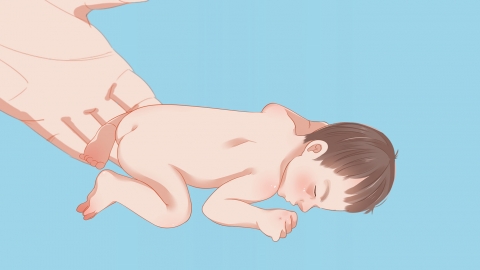Does having a newborn sleep on their stomach help with gas relief?
Generally speaking, having a newborn lie on their stomach can help expel gas to some extent, but it cannot provide a therapeutic effect. The analysis is as follows:

Due to the incomplete development of their gastrointestinal system, newborns may swallow excess air when feeding too quickly, leading to gas accumulation and bloating. When this occurs, newborns may display symptoms such as kicking their limbs, facial flushing, restless sleep, and abdominal discomfort. At this time, external methods to expel gas can help relieve the baby's discomfort. The prone position increases pressure on the abdomen, which helps expel gas from the intestines, primarily through flatulence.
In addition, lying on the stomach can strengthen the muscles of the newborn's neck, head, and chest, promoting the development of the cervical nervous system and motor function. When lying prone, pressure is applied to the cardiac sphincter area of the stomach, reducing the likelihood of stomach contents flowing back through the sphincter, thus helping to decrease the occurrence of spitting up.
When a newborn is lying on their stomach, parents should supervise closely to ensure safety. Prolonged unsupervised prone positioning should be avoided. Although lying on the stomach can help expel gas and relieve discomfort, extended periods may place pressure on the newborn's respiratory and circulatory systems.






